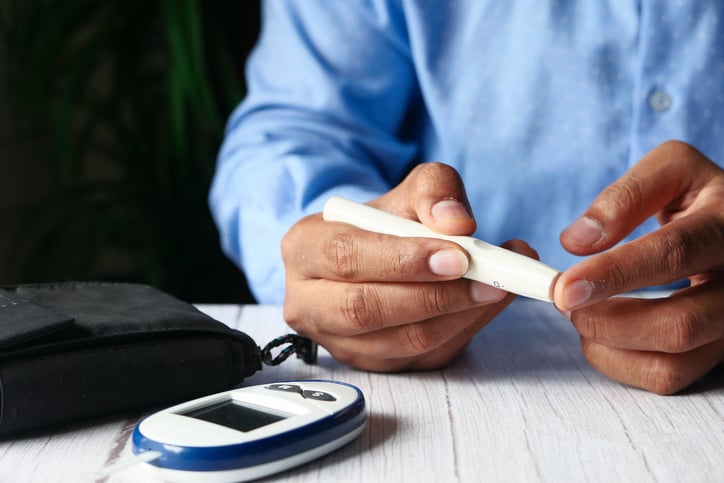Is There a Connection Between Heart Disease and Diabetes?
According to the Centers for Disease Control and Prevention (CDC), adults with diabetes are nearly twice as likely as non-diabetics to die from heart...

November is Diabetes Awareness Month. And diabetes is one of the most common medical problems in the United States. 30 million adults live with diabetes and 84 million Americans are considered prediabetic, with Type 2 diabetes accounting for 95% of all diagnosed diabetes cases in adults.
If you’ve been diagnosed with diabetes, it’s important that you learn how to manage it and make changes in your everyday life to accommodate this plan. Here’s a list of five key areas of diabetes self-management to focus on.
Make time to plan each meal for the week to keep track of your carbohydrate intake. By being prepared and creating a meal plan, it will help you monitor your blood sugar and help you keep track of the food you eat. Write down your meals in your planner or a notebook to stay organized.
Not only is it important to eat healthy foods, but you should also balance what, how much, and when you eat. Try to avoid processed foods and pick healthier options. Pay attention to portion sizes and check food labels in the grocery store. This will keep you from eating too many carbs and it will lower your blood sugar.
Regular physical activity is key when it comes to managing your diabetes. By staying active, you can reduce your blood sugar levels as well as lose weight. Set a few weekly goals that are realistic to your lifestyle and keep track of your activity. You can also try using a weight management or weight loss blog for starters. You’ll find you have a lot more energy, and exercise can help you cope with stress and lower your blood pressure.
Not everyone with diabetes takes medication, but if you do, it's incredibly important to make sure you are taking it correctly. By checking with your healthcare team and being aware of your medications, you can keep your diabetes under control as well as lower your risk of heart disease.
Keeping track of when, where, and how often you check your blood sugar level is key in managing diabetes. This often depends on a lot of factors, such as taking insulin or oral medication, exercise, and diet. Monitoring your blood sugar levels will help manage diabetes as well as assure that your care plan is working.
Learning how to manage diabetes can be a little tricky. That’s why it’s important to work with your doctor and perhaps a registered dietitian to develop a diabetes self-management plan that’s right for you.
In order to stay organized, create a plan with realistic goals for you. By exercising, eating healthy, and monitoring your blood sugar, you can keep your levels from fluctuating. Being aware of these factors that influence blood sugar, you will be able to manage your diabetes care and plan accordingly and keep your diabetes under control.
You can always use our cost-savings tool, Healthcare Bluebook, to find a reasonably priced, quality location to receive your check-ups. By choosing a cost-effective option, not only are you saving money, but you are also helping to protect your community’s collective SharePower.
As a Liberty HealthShare member, you will gain access to HealthShareRx which offers dramatic savings on your pharmacy needs including insulin, and members receive a FREE meter, low-cost testing strips, lancets, and more.
You can also learn more about diabetes, diagnosis, and monitoring at www.diabetes.org. And to find out more about how medical cost-sharing can help you and your family, download our Healthshare Buyer’s Guide. You’ll come to better understand how you can gain more control over your healthcare and save money at the same time. 

According to the Centers for Disease Control and Prevention (CDC), adults with diabetes are nearly twice as likely as non-diabetics to die from heart...

In a time when many people seek the help of health providers who share the same religious beliefs and values, searching for "faith-based doctor near...

A Christian lifestyle, when it comes to medical-cost sharing, typically has two facets. The first is a propensity to make healthy lifestyle choices....